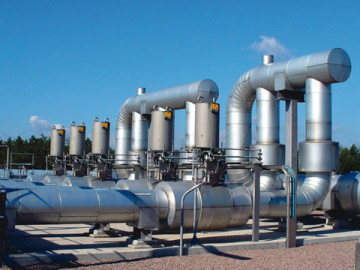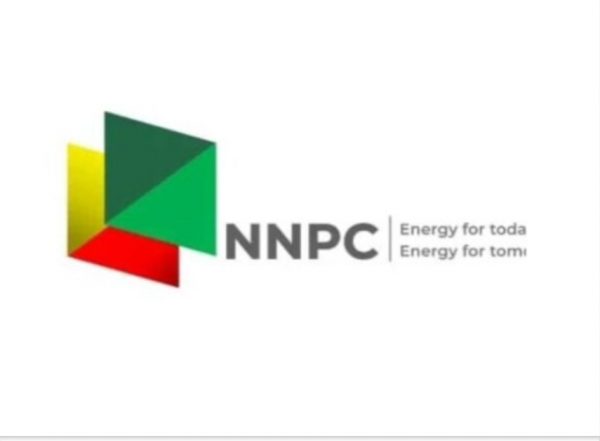Low Gas Consumption Limits NLNG Market Share

The supply of Liquefied Petroleum Gas (otherwise referred to as cooking gas) to the Nigerian market by the Nigeria Liquefied Natural Gas Limited is currently being limited by the low utilisation of the products by Nigerians.
The NLNG is claiming that it would have exceeded its current LPG supply level, but for the low penetration of the LPG in the country.
The company, according to findings by our correspondent, has resorted to developing fresh strategies that will further drive the LPG penetration in Nigeria.
In 2013, the NLNG supplied 170,000 metric tonnes of the LPG domestically, and this figure is expected to rise in 2014, all things being equal.
The Deputy Managing Director, NLNG, Mr. Isa Inuwa, told our correspondent that the level of the LPG supply was growing domestically, but remained subject to what the market could absorb. In other words, the constrained Nigerian market was limiting the potential supplies of the product.
Inuwa said, “We produce LPG, from which we export and supply the domestic market. But one of the things NLNG has done is to develop strategies that will increase the amount of LPG that is used domestically.
“This is subject to what the market can absorb because majority of Nigerians don’t use LPG.”
Part of the reasons for subsidising the cost of domestic gas, he said, was to encourage usage of the product in Nigeria.
The NLNG DMD said, “Through our action, we are developing the market underneath. We did 170,000MT last year; but this year, we are on the way to doing a little bit higher than that.”
He said it was not an issue if NLNG was selling all its gas domestically, adding that the country had a lot to benefit if all the products of the firm were consumed within the shores of Nigeria.
Inuwa added, “We don’t mind if we sell all our gas domestically. It will not only help our economy, but will also help our environment, and as well bring money to us; but not as much as it would be if we had exported.
“That is one of the things we have to do as a Nigerian company owned by Nigerians and Nigerian shareholders.”
This target by the NLNG, however, may not be realised if cases of pipeline vandalism persist.
According to the General Manager, Production Division, NLNG, Mr. Chima Isilebo, holes are still being drilled on gas pipelines by vandals who erroneously assume that the pipelines are conveying crude oil.
He also said part of the challenges facing the company were: gas supply availability; gas transmission system reliability; third-party interference on gas pipelines; aging assets/obsolescence; and inadequate technical resources.
Findings by our correspondent also revealed that currently, fiscal are legislative regime as well as the regulatory framework currently operational in the country also pose some level of challenge to the NLNG business.
The current Petroleum Industry Bill before the National Assembly, it was learnt, did not holistically address the concerns of the NLNG. The PIB, prior to its being amended, had addressed majority of these concerns.
Owing to the level of domestic gas supply by the NLNG, which is seen as low at 170,000MT, some stakeholders believe the company’s initial mandate was not to feed the local market.
According to them, current supply frameworks of the company were indicative of the fact that gas export was being concentrated upon, to the detriment of the domestic market.
To this end, Isilebo said the initial market of the company was not domestic, but added that the deregulation of the business had made the company to develop strategies for the domestic market.
But aside these moves to drive local penetration, a lot of the company’s outputs are still channelled towards exports.
Mid last year, the NLNG announced its plans to increase the domestic supply level by 67 per cent. Then, its supply was 150,000MT.
It explained that the move was in continuation of the company’s commitment to re-create a domestic LPG industry in Nigeria to ensure ample stock of the alternate fuel and promote the use of cooking gas, noted for its environmental friendliness including its role in controlling deforestation.
The NLNG, the leading gas production and supply company, currently accounts for over 70 per cent of cooking gas used in Nigeria. It is a Joint Venture company whose shareholders include the Nigerian National Petroleum Corporation (49 per cent), Shell Petroleum Development Company of Nigeria Limited (25.6 per cent), Total Exploration Production Nigeria (15 per cent), and Nigerian Agip Oil Company Limited (10.4 per cent).
The need for the then planned increase in supply of the commodity, the company explained, arose from its recent survey of the domestic gas market, which showed that domestic LPG consumption had exceeded 150,000 MT per annum, a demand which was less than 60,000 metric tonnes when NLNG intervened in 2008 with domestic supply of cooking gas.
Nigeria, with gas reserve reputed to be in excess of 187 trillion cubic feet, is the largest producer of liquefied petroleum gas, LPG, in West Africa. However, the LPG utilisation in Nigeria has been abysmally low, with the consumption figures put at about 110,000 MTPA in 2005.
The poor utilisation level was attributed to the poor operational state of the country’s four refineries which could not cope with needs of Nigerians.
To redress the situation, government directed that a percentage of the LPG produced from the NLNG, NNPC/Chevron and NNPC/ExxonMobil Joint Venture NGL plant in Bonny River Terminal be set aside for the domestic market, with about 150,000 MTPA from the NLNG dedicated for that purpose on a free on board basis in 2006.
Experts say the increased use of the LPG in the domestic market has helped in reducing the level of destruction to the environment; incidence of respiratory health problems attributable to wood smoke; the poverty level, while jobs are created for Nigerians from new business opportunities.








